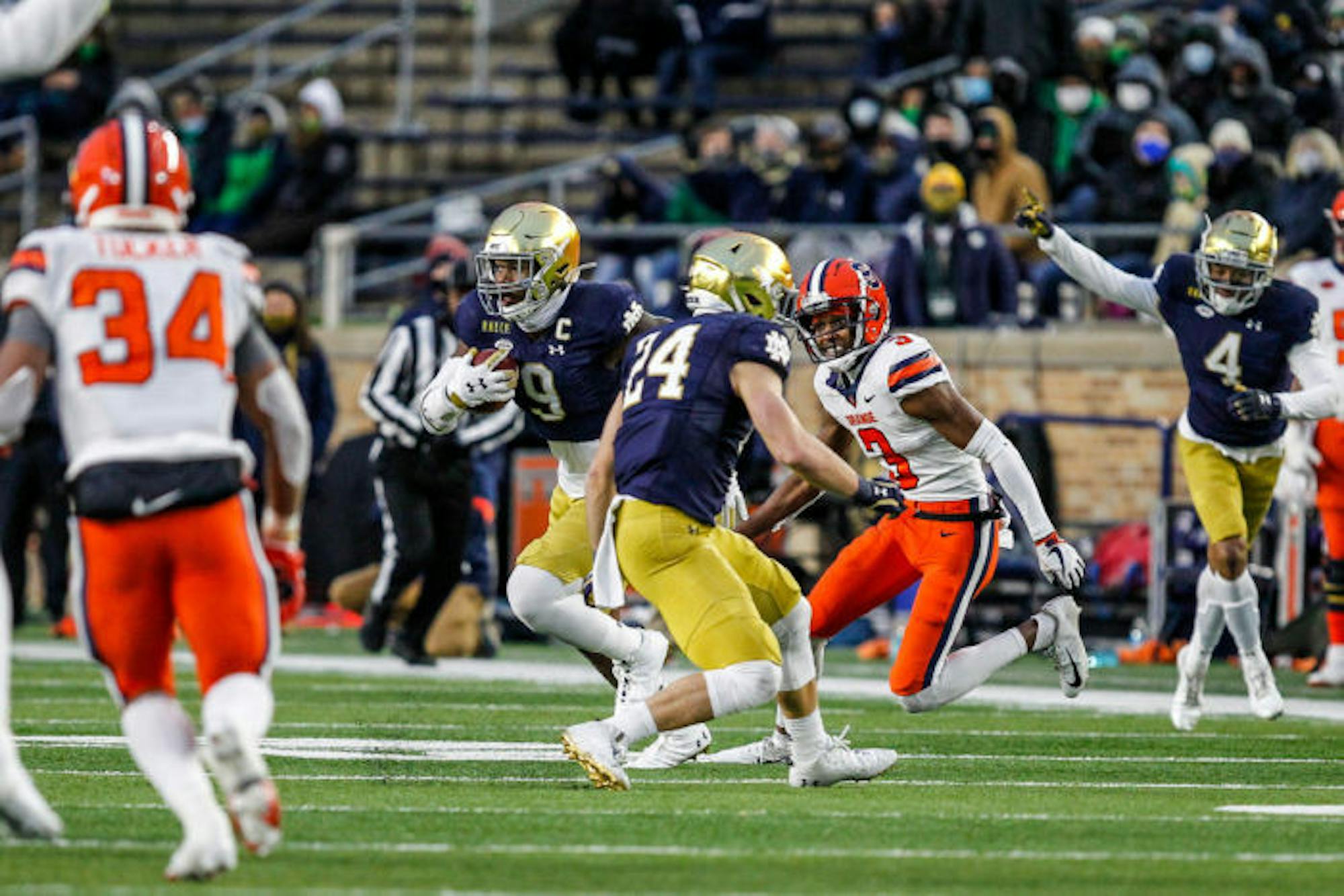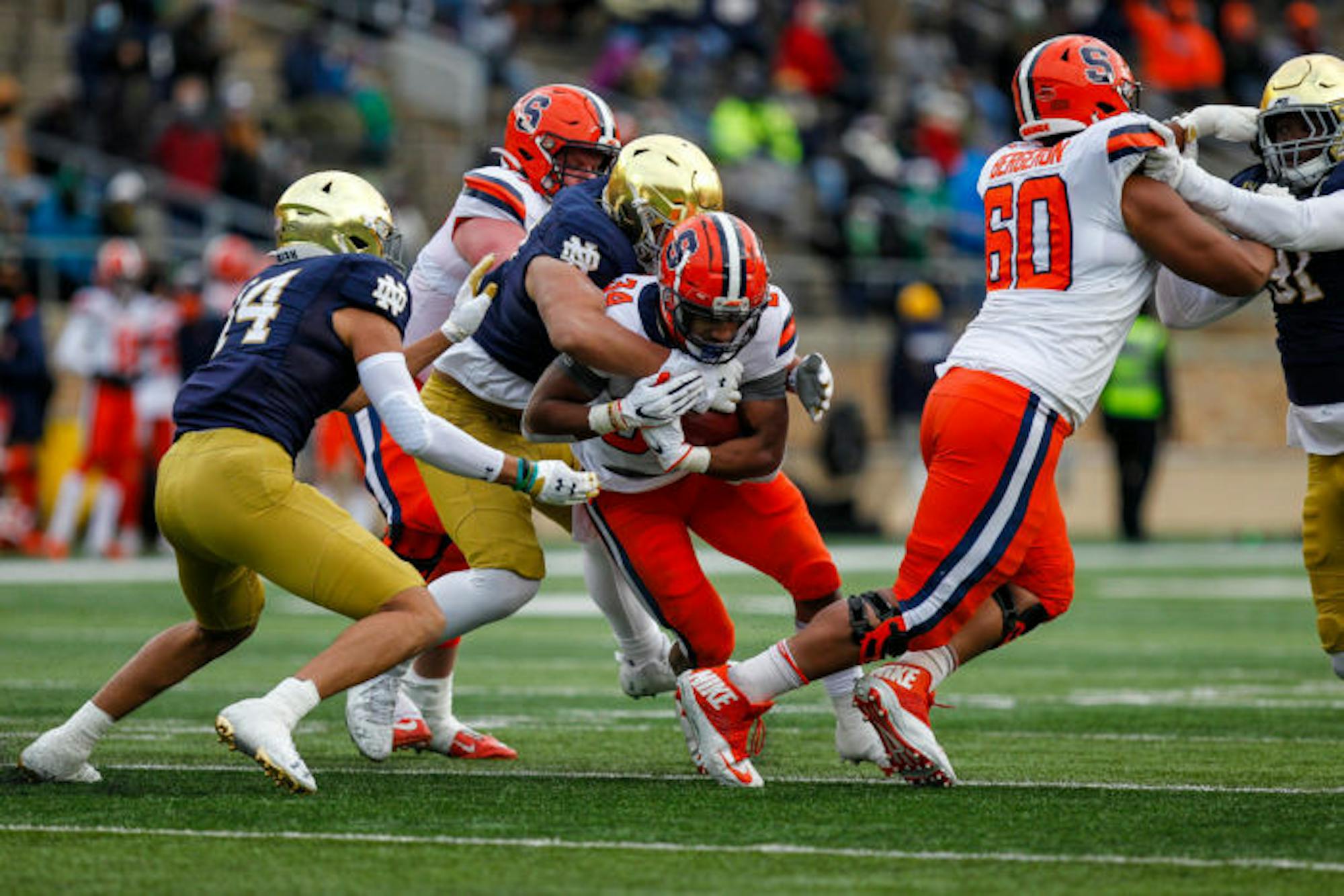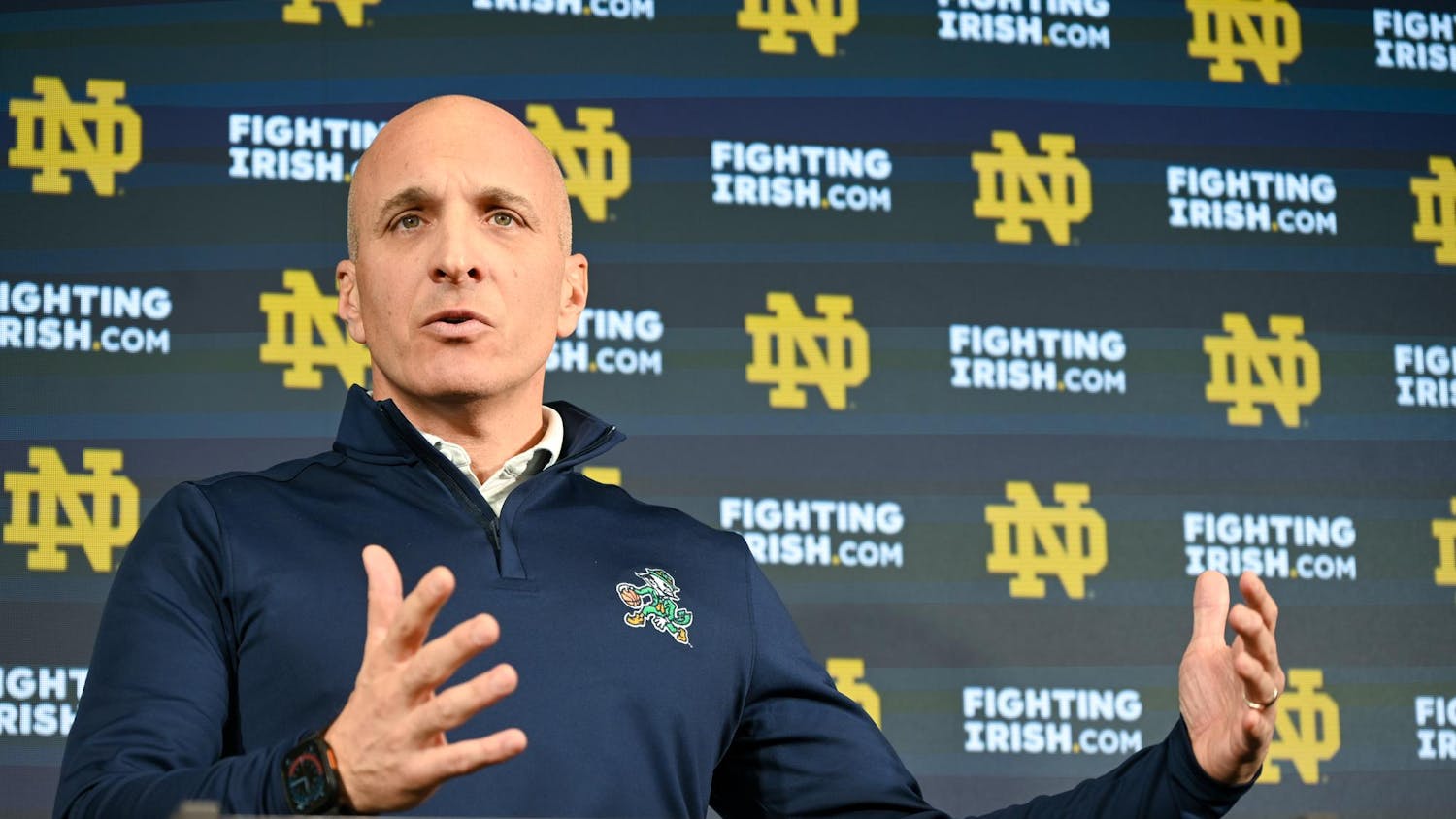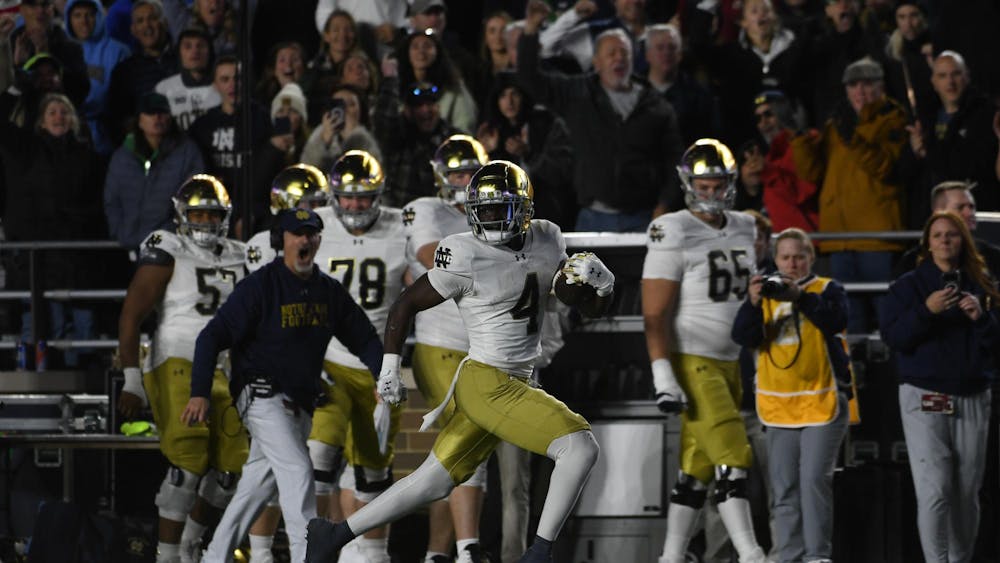Throughout most of the first half, something seemed off for Notre Dame. The Syracuse defense looked surprisingly formidable as the Irish offense suffered two three-and-outs as well as a turnover on downs. Notre Dame’s defense also struggled as they uncharacteristically allowed the Orange to convert on two third downs through wildcat rushing plays, which eventually led to a touchdown and a 7-3 lead for Syracuse.
The Orange were controlling the pace of the game with quick throws and effective short yardage rushing plays, and Notre Dame was clearly in trouble. Syracuse’s rapid offensive tempo even caused the Irish to commit a substitution penalty late in the second quarter, and the Orange seemed to be gaining the momentum needed to score another touchdown. But, just like they have throughout most of the season, Notre Dame’s defensive unit made adjustments, and, on the very next play, caused Rex Culpepper to fumble and give the Irish the ball in the red zone, which would allow Notre Dame to score and build a 10-point lead.
I believe that this play was the turning point in the game as the whole team seemed reenergized after it and the offense would go on to score 21 points at the end of the second quarter alone. Moments like that sack continue to prove that the defense or, more specifically, the front seven, is the heart and soul of this Notre Dame football team and could be the key to the program’s first national championship not just in the playoff era, but in more than 30 years.
At first glance, the Irish defense underperformed against Syracuse, who had only managed to obtain three yards on the ground against NC State last week. The Orange have played through the season without their two best running backs and have accumulated the least amount of rushing yards in the ACC. Despite these developments, freshman running back Sean Tucker ran for 113 yards, which is statistically the best rushing performance against the Notre Dame defense this season.
Tucker’s dominant game is not that concerning upon closer examination, though, because 40 of his yards were amassed on one touchdown run, which can be attributed to a rare defensive lapse by the Irish. The Orange ran for a total of 229 yards, but 80 of these came from another long touchdown run, which can also be explained as an unfortunate defensive lapse. Can’t we assume the Irish will be much more on their game in the ACC Championship against an opponent not boasting a 1-9 record?
Besides these two plays, which accounted for 120 yards, the Irish defense actually contained Syracuse’s rushing attack reasonably well and even forced the Orange to commit four turnovers. I expect the Irish will learn from these mistakes and make the proper adjustments needed to return to form for the ACC championship game. I trust in the Notre Dame defense because they have excelled against the rush all season.
The Irish have allowed 806 rushing yards on the year, which is the lowest mark in the ACC. And, before today, they had held all opposing running backs under 100 yards in each game. Having faced Clemson’s Travis Etienne and North Carolina’s Javonte Williams, Notre Dame’s defense has held them to a combined 29 carries for 56 yards.
Etienne is widely considered to be one of the most dynamic rushers in the NCAA, but the Irish held him to a mere 28 yards in their monumental victory over Clemson. The Tarheels also relied heavily on their running backs as Williams and backfield-mate Michael Carter averaged over 100 yards per game apiece for most of the season. However, the Irish defense dominated UNC holding Williams and Carter to 28 and 57 yards, respectively.
This defense’s tendency to contain star running backs was a main reason that Notre Dame was able to defeat arguably its two strongest opponents. Without a strong running game to take some of the pressure off them, both D.J. Uiagalelei and Sam Howell couldn’t rise to the occasion during the defining moments of their matchups against Notre Dame.
I would not be surprised if this pattern of elite quarterbacks struggling without their usual running back production continued into the postseason. The other main playoff contenders — Alabama, Ohio State, Clemson and Florida — rely relatively heavily on their rushing attacks as they all average over 125 yards on the ground per game. If the regular season is any indication, the Irish defense should lower each of these averages and cause their running backs to be less effective, which will force their quarterbacks to throw more than usual. Look how that worked out for Georgia and Michigan against Notre Dame last season.
This added pressure on opposing quarterbacks has contributed to the fact that Notre Dame holds its opponents to a 25% third-down conversion percentage, which is the third-best among all FBS programs. I will admit that the Irish have not played against a top-tier quarterback like Mac Jones, Trevor Lawrence or Justin Fields. However, Uiagalelei and Howell were still very formidable passers — Uiagelelei did throw for the most yards an opponent has ever gone for against Notre Dame — so I am confident that the defense will be able to perform at a high level against these other players.
In an age where a Heisman candidate quarterback almost seems to be a prerequisite for playoff contention, the old cliché that defense wins championships appears to be a relic of the past; however, I believe Notre Dame’s defense sets them apart from the other elite programs this year. The Irish offense is good, but the defense is Notre Dame’s key to victory, as they have a claim for being the strongest defensive unit in the country.
If the Irish can clean up a few of their momentary lapses in coverage before the postseason, the other playoff contenders should be worried.
Gallagher: The old cliché ...
Courtesy of Notre Dame Athletics
Irish graduate student defensive end and captain Daelin Hayes turns upfield after intercepting a pass while sophomore linebacker Jack Kiser looks to block for him during Notre Dame's 45-21 Senior day win over Syracuse on Dec. 5. It was Hayes' first interception of his career and Notre Dame's sixth of the season.
Irish sophomore safety Kyle Hamilton looks to get in on a tackle on Syracuse freshman running back Sean Tucker during Notre Dame's 45-21 Senior Day win over the Orange on Dec. 5. Notre Dame surrendered 229 yards on the ground and 101 to Tucker. Along with redshirt sophomore Cooper Lutz, it is the first time all season that a running back has cracked 100 rushing yards on the Irish defense.








